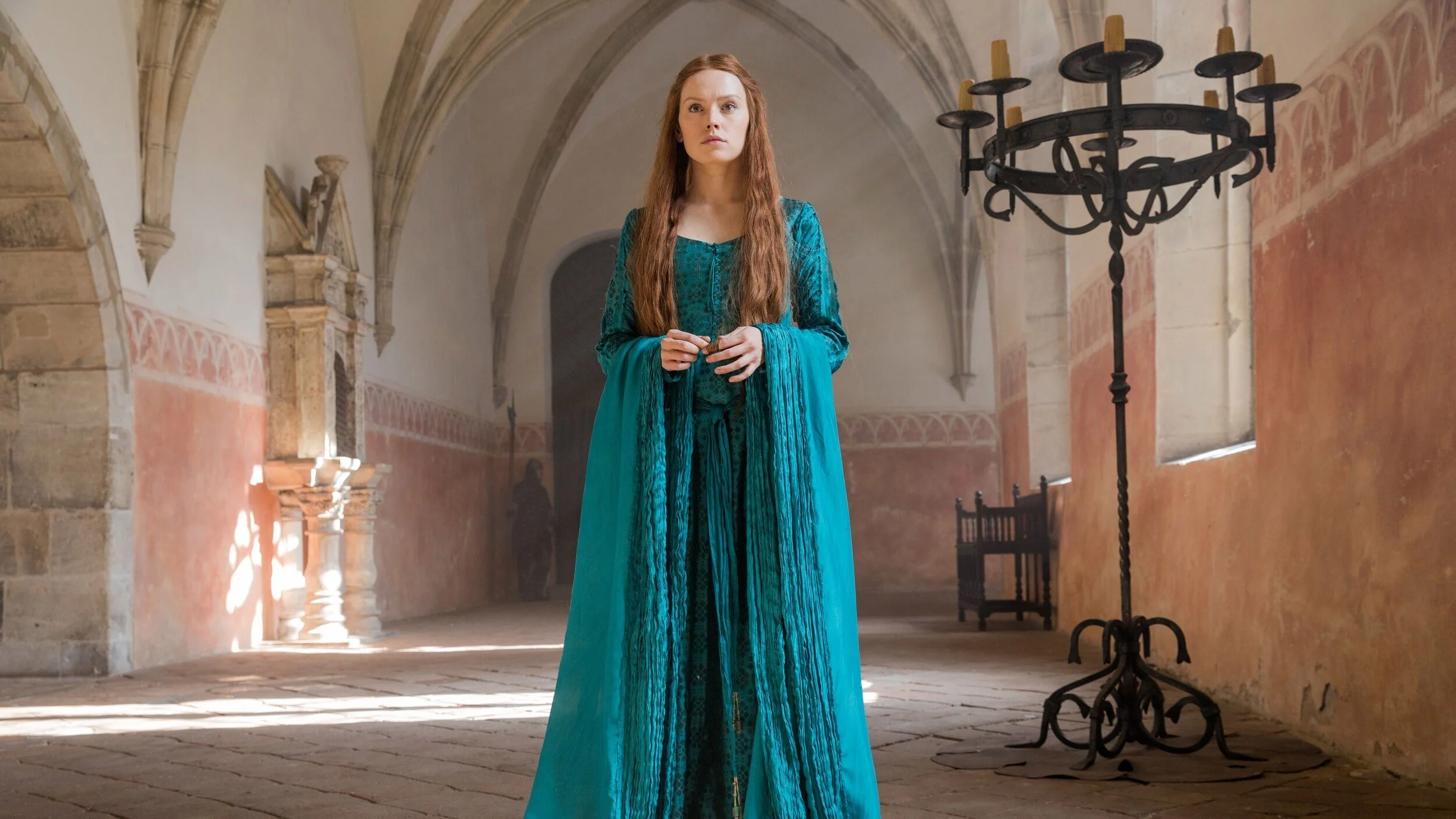Ophelia
A new light on famous characters created by William Shakespeare.
Daisy Ridley
This film is unquestionably a curiosity and some viewers may be intrigued by it, but I found it increasingly ineffective. Shot in ‘Scope it is certainly handsomely mounted yet the very concept of the piece in itself raises doubts and questions. What is on offer is a reworking of Shakespeare’s Hamlet in which a variant on the play is presented. At the outset we have Ophelia (Daisy Ridley) informing us in voice over that we may think that we know her story but that she is now telling it herself for the first time. What then follows is indeed a work for the 21st century in that this Ophelia is the central character and emerges as a heroine to appeal to all those who now look for films featuring strong women.
However, despite this modern slanting of the material, the tale still unfolds in a period setting so this venture is not comparable with Basil Dearden’s All Night Long (1961) which replayed the plot line of Othello as a contemporary drama. Instead, this film is a kind of halfway house in which Semi Chellas, adapting the novel by Lisa Klein, replaces Shakespeare’s dialogue with language to fit a past era but which self-consciously tries to be clever with wordplay and even deliberately evokes some of the famous lines from the play. However, the echoes remind one of the poetry that is missing, while some entirely new ingredients misfire. In this version Hamlet’s mother, Queen Gertrude (Naomi Watts), has a sister, Mechtild (also Watts), who, despite having been falsely accused of witchcraft, does have potions which if taken give the appearance of death. That notion may be a borrowing from Romeo and Julietbut as a means of giving Ophelia a life beyond her original death, it leads the film into a ludicrous last Act presented with a touch of slow motion at its violent climax.
Since the original will always exist, there is no reason to complain in principle about a film like this that plays on the original and some may be entertained by the back story offered (a third of the film precedes the point at which the play opens) and by the shifts in perspective. However, just as the invention of Mechtild seems rather desperate, making Hamlet’s stepfather Claudius even more of a villain merely encourages Clive Owen to give a dull one-note performance. Ridley herself is not an actress who looks entirely at home in a past historical era and, if the stress on Ophelia turns Hamlet first and foremost into her lover, George MacKay, excellent actor though he is, appears miscast as a romantic lead. Watts may have two roles but is hardly memorable in either. Consequently, we are left with a very individual film that looks good but not one to which I could respond with any enthusiasm. But because it is such an unusual piece, some may find it more to their taste than I did.
MANSEL STIMPSON
Cast: Daisy Ridley, Naomi Watts, Clive Owen, George MacKay, Tom Felton, Devon Terrell, Daisy Head, Anna Rust, Dominic Mayhem, Sebastian De Souza, Jack Cunningham-Nuttall, Mia Quinney.
Dir Claire McCarthy, Pro Daniel Bobker, Sarah Curtis, Paul Hanson and Ehren Kruger, Screenplay Semi Chellas, from the novel by Lisa Klein, Ph Denson Baker, Pro Des David Warren, Ed Luke Dunkley, Music Steven Price, CostumesMassimo Cantini Parsini.
Covert media/Bert Marcus Productions/Bobker/Kruger Films/Forthcoming Films-Blue Finch Film Releasing.
107 mins. UK/USA. 2018. Rel: 22 November 2019. Cert. 15.


